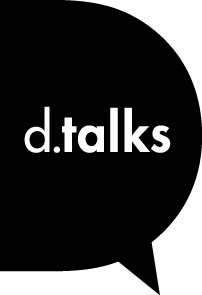In his introductory remarks, Elder Wolfleg framed the Who Decides? conversation by calling attention to “learning what we need to hear in order to understand.”
This discussion explores representation with a wide lens: from the classroom to the worktable, to the way our city is designed.
Why look at who’s making the design decisions for our city?
Many planners recognize the need for citizen engagement, says Ipek Türeli, but engagement with whom becomes the question. “Representation matters.” To look at improving the pipeline for designers from underrepresented communities, the panelists explore public education, university experience, and retention of diverse voices within design professions.
Learning what we need to hear…
When leadership takes account of who’s missing from the decision-making table, what happens? “Look around. It’s not an accident who’s there,” noted Wendy Koo, identifying how representation matters within an organization. “We need to be able to see and promote people that exhibit a diverse leadership style. If not, we continue to have the same faces making the same decisions.”
Retention of designers, engineers, architects and planners often depends upon a sense of belonging. If they don’t see themselves as part of the workforce, they’ll migrate away. The same goes for educational institutions: including diverse voices within faculty and with the architecture and design curricula must be intentional. Destiny Kumira shared how barriers can pile up on an individual.She describes barriers as intersectional, or layered and asks, “What can we do to support that one student who is alone in the room?”
…in order to understand
An audience member asked,
“How do we create a safe environment for racialized and other marginalized people to have these conversations in an academic or workplace environment? Have you ever felt threatened or unsafe to raise your concerns or advocacy?”
Panelists replied with… “Listening. And asking again.” “Continuing the conversation, moving to action.” “We need to be critical of how we are faring.” And finally, “We need to build alliances. Small steps.”
Watch the conversation below.
Four key questions were posed during the live conversation. If you are inclined, please feel free to share your experience and your ideas on any of the questions below.
Speakers
In order of appearance
Elder Michael Wolfleg Sr. is a member of The Brave Dog Society Siksika Nation Treaty 7 Territory.
Ipek Türeli is the Canada Research Chair in Architectures of Spatial Justice and an Associate Professor at the Peter Guo-hua Fu School of Architecture at McGill University. Her research interests include spaces of education and campus landscapes, low-income housing and participatory design, and spatial activism. She has many publications on visualizations of the city in photography, film, exhibitions, and museums. Her research on Istanbul was awarded several fellowships and grants including those by the Graham Foundation and the Middle East Research Competition in the US and SSHRC, FRQSC and CFI in Canada. Her books include the co-edited book Orienting Istanbul (2010) and authored book Istanbul Open City (2018). In addition to her scholarly work, she has organized and contributed to several exhibitions in recent years. One of her ongoing projects is Architecture Playshop: Developing critical literacy with young children around climate change, forced migration and the built environment, which originated as an invited program for the Korean Pavilion at the 2020 Venice Biennale.
Destiny Kirumira holds a BA in Mathematics and Physics (University of Alberta) and a Master of Architecture (University of Calgary). She is currently a second-year Ph.D. student at the Peter Guo-hua Fu School of Architecture at McGill University. Her research explores the architecture of Black settlements in Canada. In addition to being a Ph.D. candidate, Destiny is also a visual artist interested in using Black portraiture to address Anti-Blackness. As both an architect and artist, her work attempts to uproot and reconcile the roots of racism in both fields with a current emphasis on Black spaces and narratives. Destiny’s essay Home is All Around appears in the Interrupt, Reframe issue of FOLD.
Wendy Koo is a Coordinator at The City of Calgary that leads one of the many teams that contribute to the daily work of city-building. As a Chinese-Canadian immigrant, she has lived in 4 countries and many interesting cities that have influenced her professional practice. She currently works and lives in the Treaty 7 area with a family that includes two energetic kids. Wendy has over 15 years of experience that has centred on downtown and inner city redevelopment. Over the last few years, her focus has been more on people and places, including creating space for the hard conversations around equity, diversity and inclusion within the planning profession. Prior to joining The City of Calgary in 2013, she was a planner at The Regional Municipality of Wood Buffalo in northern Alberta, an urban planner and designer at HOK and a redevelopment planner for the Centre for Addiction and Mental Health in Toronto.
FOLD Editorial Committee Closing Remarks by: Lisa Wambaa
References Mentioned
Aimi Hamraie, Building Access: Universal Design and the Politics of Disability, Minneapolis: University of Minnesota Press, 2017.
Beth Tauke, Korydon H Smith, Charles L Davis II, Diversity and Design: Understanding Hidden Consequences New York, NY : Routledge, Taylor & Francis Group, 2016.
Gabriella Gutiérrez y Muhs, Yolanda Flores Niemann (Editor), Carmen G Gonzalez, Angela P Harris (eds), Presumed Incompetent: The Intersections of Race and Class for Women in Academia, Boulder, Colorado: University Press of Colorado, 2012.
Ontario’s Enabling Change Program.
Melvin L Mitchell, The Crisis of the African American Architect, Luniverse Inc, 2002.
Recognition of support
This talk was produced in partnership with the Calgary Public Library. The talks are part of the Interrupt, Reframe issue of FOLD, published by d.talks.
Interrupt, Reframe was made possible with the support of Canada Council for the Arts, in addition to the ongoing support of Calgary Arts Development and the Alberta Foundation for the Arts.


